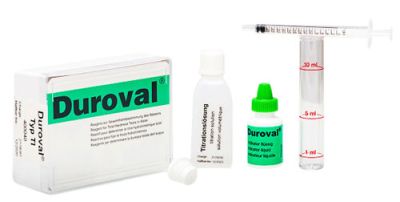Hardness and residual hardness monitoring in dialysis
Hardness and residual hardness monitoring in dialysis
Water hardness and carbonate hardness play an important role in dialysis, especially in water treatment for haemodialysis. Some key points are listed below:
- Water hardness: Water hardness is mainly determined by the concentration of calcium and magnesium ions in the water. In dialysis, hard water can cause deposits and blockages in the dialysis machines. These deposits can affect the efficiency of dialysis and shorten the lifespan of the machines.
- Carbonate hardness: Carbonate hardness, also known as temporary hardness, refers to the amount of calcium and magnesium bicarbonates in the water. When the water is heated, these compounds can be converted into carbonates, which then precipitate and can also cause deposits.
- Water treatment: To avoid these problems, the water used for dialysis is carefully treated. This includes steps such as softening, decarbonisation and reverse osmosis to ensure that the water is free of impurities and has a suitable level of hardness.
- Patient safety: The quality of the water is crucial for patient safety. Impurities or inappropriate levels of hardness can cause health problems for patients, such as electrolyte imbalances or toxic reactions.
Maintaining water quality is therefore an essential success factor for dialysis. This ensures safe and effective treatment for patients.
DUROVAL® TI test kit 0-30 °dH
To ensure that the dialysis process is carried out properly at all times, the water hardness is regularly determined, among other things. To check the water hardness, customers use our ‘DUROVAL® TI test kit 0-30 °dH’.
This product is suitable for determining water hardness in all hardness ranges by complexometric titration with a liquid titrant and a dosing pipette that is precisely calibrated in hardness units.
DUROGNOST® SR (0.5 / 0.25 °dH) limit value test kit
For downstream control of water treatment with regard to the residual water hardness of softened water, we recommend the HeylNeomeris ‘DUROGNOST® SR (0.5 / 0.25 °dH) limit value set’.
This product is a special liquid indicator in a dropper bottle for monitoring the residual hardness in softened water, set to the limit values of 0.5 and 0.25 °dH (8.9 and 4.47 ppm).
